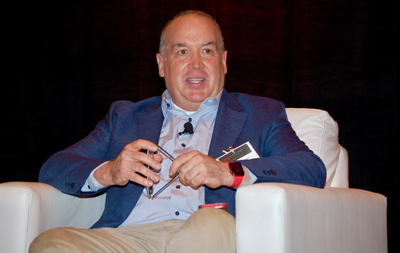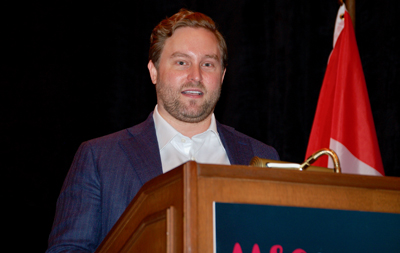“That wasn’t even on the list when we started taking this survey two years ago,” Challenger said. “But this is something that employers are hearing from workers constantly, that they want to feel listened to, they want to feel like people, and they want to feel cared about.”
Discussion about “wage inflation”---and increases in the cost of living---have helped bump “higher wage” up from sixth on the list to the No. 3 spot, he said. And “upward career trajectory” remained the fourth highest priority.
“Employees today are saying they really want a path forward in the organization,” Challenger said. “Employers that are able to provide that are going to be rewarded in this strong labor market.”
‘ESG’ Concept Entering the Collision Repair Market
Although most collision repair organizations likely are not familiar with the term “ESG practices,” it’s something they may be increasingly asked about by insurance companies---or from larger MSOs looking at valuing and acquiring new locations.
ESG stands for environmental, social and governance practices. During a panel discussion on the topic at the MSO Symposium, Diane Kappas of PPG said ESG is a term created by the investment community to talk about a corporation’s non-financial impacts, risks and opportunities.
Susie Frausto of The Boyd Group, the Canadian parent company of Gerber Collision, said the “E” section of that company’s first ESG report, published earlier this year, outlines how Boyd is mitigating its impact on the environment. Its “Repair First” program, for example, was created “to repair more plastic parts to keep them from entering landfills,” and the company is committed to using waterborne paints in both its existing and newly-acquired shops.

The “social” aspect of ESG encompasses such thing as wages, employee and community engagement, and supply chain relationships. Boyd’s report, for example, highlights its talent development program started in 2018, which has provided a 12- to 18-month training program attributed with developing more than 100 new technicians, with a goal of doubling that number next year.
Governance, Frausto said, focuses on such things as how a company’s leadership is aligned in providing transparency in its ESG practices.
Eddie Hightower of Caliber Collision said one reason more collision repairers may want to focus on ESG is insurance companies’ interest in partnering with companies that do. Three years ago, he said, insurers would ask questions about Caliber’s focus on sustainability, for example, but Hightower said it seemed largely about checking a box.
“The last couple of years, they started to get more intense,” he said. “They’re asking many more questions. ‘Do you really have a program really thinking about this?’ That’s because if you have a well-thought-out sustainability program, you’re thinking about risk. If you’re thinking about risk, you’re a good risk for the insurers. So looking ahead, if you want to have access to insurance markets, you’re really going to have to think about sustainability. It really does have an impact on your bottom line.”










John Yoswick